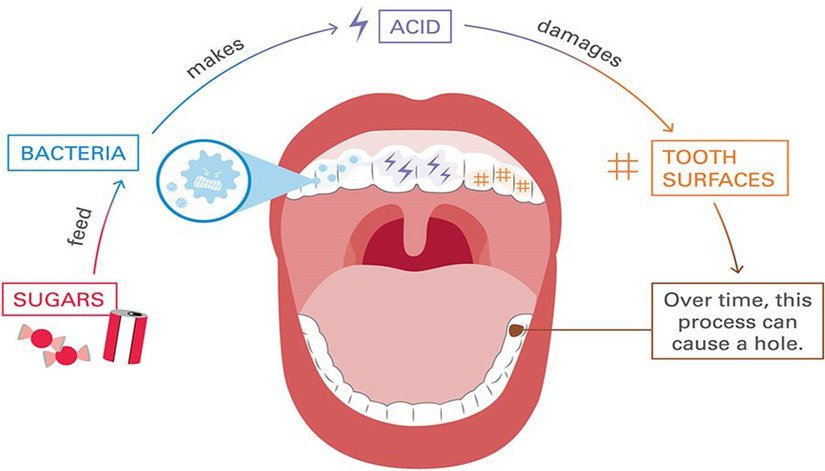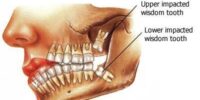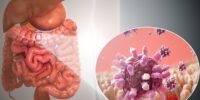Dental Caries – Causes, Symptoms, And Treatment

Dental caries, also known as cavities, are a common problem experienced by both children and adults. If you’ve ever had a cavity, you know the feeling of discomfort it can cause.
It’s important to be aware of the causes, symptoms, and treatment of dental caries in order to prevent them from occurring. In this article, you’ll learn what dental caries is, what causes it, how it’s diagnosed, what treatment options are available, and how you can prevent it.
You’ll also learn about any complications that can arise from dental caries and how to maintain good oral health.
What is Dental Caries?
If you’ve ever had a cavity, you know that it’s no fun. Dental caries, commonly known as cavities, are a type of tooth decay caused by bacteria. The bacteria form a sticky film, called plaque, which builds up on the teeth and produces acids that damage the tooth enamel. Over time, this leads to cavities, which can cause sensitivity, pain, and other serious dental health issues.
Cavities can be prevented by practicing good oral hygiene, such as brushing and flossing your teeth regularly and avoiding sugary foods and drinks. Treatment for dental caries is typically done by a dentist. It involves removing the decayed part of the tooth and filling the cavity with a material such as composite resin, silver amalgam, or glass ionomer.
The dentist may also seal the area around the filled cavity to prevent further decay. In some cases, a crown may be needed to protect the tooth and restore its shape. If the decay is left untreated, it can cause severe pain and even tooth loss. Therefore, it’s important to visit a dentist to have any cavities diagnosed and treated.
What Causes Dental Caries?
You might be surprised to learn what can lead to cavities! The primary cause of dental caries is the bacterial colonization of the teeth. Bacteria produce acids as a byproduct of their metabolism, which can dissolve the enamel of the teeth and cause cavities. Additionally, poor oral hygiene can lead to cavities and increase the risk of tooth decay. Specifically, inadequate brushing and flossing can lead to a buildup of plaque, which is a sticky film of bacteria, on the teeth.
Lastly, dietary habits such as eating sugary foods can also increase the risk of cavities in individuals. Furthermore, other factors such as genetics, systemic conditions, and age can also increase the risk of cavities. For instance, individuals with a family history of tooth decay may be more vulnerable to cavities. Additionally, individuals with diabetes and other systemic conditions that affect the immune system or saliva production may be at a higher risk of developing cavities.
Finally, children and older adults may be more vulnerable to cavities due to a lack of regular dental care. In summary, the primary cause of dental caries is the bacterial colonization of the teeth, and other contributing factors include:
- Poor oral hygiene
- Dietary habits
- Genetics
- Systemic conditions
- Age
- Medication use.
What are the Symptoms of Dental Caries?
Though it can be difficult to detect, dental caries can have serious consequences if left untreated, so it’s important to be aware of its symptoms. The most common symptom of dental caries is tooth decay—the result of bacteria in the mouth breaking down the enamel of the tooth. Other common symptoms include tooth sensitivity, visible holes or pits in the teeth, discoloration of the teeth, and pain when chewing or biting.
| Symptoms | Description | ||
|---|---|---|---|
| Tooth Decay | Occurs when bacteria in the mouth breaks down the enamel of the tooth | ||
| Tooth Sensitivity | Pain when consuming hot or cold foods and drinks | ||
| Visible Holes or Pits | Cavities in the teeth that are visible to the eye | ||
| Discoloration | Yellowing or discoloration of the teeth | ||
| Pain When Chewing | Pain when biting or chewing hard foods | or other objects. |
How is Dental Caries Diagnosed?
To diagnose dental caries, your dentist will conduct a comprehensive examination of your teeth and gums. They will look for visible signs of decay, such as discoloration, holes, or pits in the teeth. Discoloration can range from light yellow to dark brown, while holes may appear as black spots or dark patches. Pits can be small or large and often appear in the enamel.
Your dentist will also check for sensitivity to hot, cold, or sweet foods. Pain may be felt when consuming hot or cold food and drinks, while sweet foods may cause an uncomfortable tingling sensation. Swelling or inflammation of the gums is another sign of dental caries. Gums may be red and tender to the touch, and bleeding may occur when brushing or flossing.
To ensure that all areas of decay are identified and treated properly, your dentist may also take x-rays to view any decay between the teeth or that is hidden under the enamel or gums.
What are the Treatment Options for Dental Caries?
If left untreated, dental caries can cause serious damage, so it’s important to understand the available treatment options. The most common treatment for dental caries is a filling, which involves removing the decayed part of the tooth and then filling it with a special material. In some cases, a crown may be required, where a cap is placed over the affected tooth to protect it from further damage. For more severe cases, a root canal may be necessary. In a root canal, the damaged pulp is removed and replaced with a filling material.
The following table will give you a better understanding of the different treatment options for dental caries:
| Treatment | Description |
|---|---|
| Filling | Removing the decayed part of the tooth and then filling it with a special material. |
| Crown | Placing a cap over the affected tooth to protect it from further damage. |
| Root Canal | Removing the damaged pulp and replacing it with a filling material. |
How Can I Prevent Dental Caries?
Taking proactive steps to prevent dental caries is the best way to safeguard your oral health. To do this, there are three key steps:
- Brush and Floss:
- Brush twice daily with fluoride toothpaste.
- Floss at least once a day.
- Visit your dentist regularly for checkups and cleanings.
- Limit Sugary Foods and Drinks:
- Avoid sugary snacks and drinks as much as possible.
- Drink lots of water and chew sugar-free gum to help stimulate saliva production.
- Be Mindful of Oral Hygiene Habits:
- Don’t chew on hard objects like pencils and pens.
- Avoid smoking and chewing tobacco.
- Wear a mouthguard if you participate in contact sports.
Following these steps can help reduce your risk of dental caries and ensure your teeth and gums stay healthy and strong. Regular dental checkups are also important to make sure any cavities or other problems are caught early and treated.
Are There Any Complications of Dental Caries?
If left untreated, dental caries can cause serious complications that can affect your overall oral health. The decay caused by dental caries can spread to the deeper layers of your tooth, leading to an infection that can damage the pulp and root of the tooth. This can lead to pain, swelling, and even abscesses.
In addition, the bacteria that cause dental caries can also spread to the surrounding gums, leading to gum disease. If left untreated, this can cause redness, inflammation, and bleeding of the gums. Furthermore, the infection can spread to the bone, leading to bone loss and eventually tooth loss.
To prevent these serious dental complications, it’s important to treat dental caries early on before the decay has a chance to spread. This can be done through regular visits to the dentist for checkups and cleanings.
How to Maintain Good Oral Health?
Good oral hygiene is key to avoiding dental complications and maintaining overall health. To maintain good oral health, it’s important to brush your teeth twice a day and floss at least once a day.
It’s also important to use a mouthwash that contains fluoride to help protect your teeth from decay. Additionally, go to the dentist regularly for checkups and cleanings. This will help detect any problems and allow the dentist to take preventive measures.
Furthermore, it’s important to limit sugary and acidic foods and drinks as these can lead to dental caries and other oral health problems. Lastly, make sure to drink plenty of water to help clean the teeth and mouth and to prevent dry mouth.
Following these simple tips can help keep your teeth and gums healthy and avoid dental caries.
Conclusion
You know the importance of keeping your teeth healthy, and dental caries is one of the main causes of tooth decay.
Now you know what causes it, the symptoms, how to diagnose it, and the treatments available. You’re also aware of the steps you can take to prevent it, and the possible complications of leaving it untreated.
Taking care of your teeth is essential for your overall health, so make sure you brush twice a day, floss regularly, and use mouthwash. Make regular visits to your dentist to ensure your oral health is in tip-top shape.
Don’t ignore the signs of dental caries, and seek treatment as soon as possible. Taking the necessary steps to keep your teeth healthy can make a big difference in your life.








